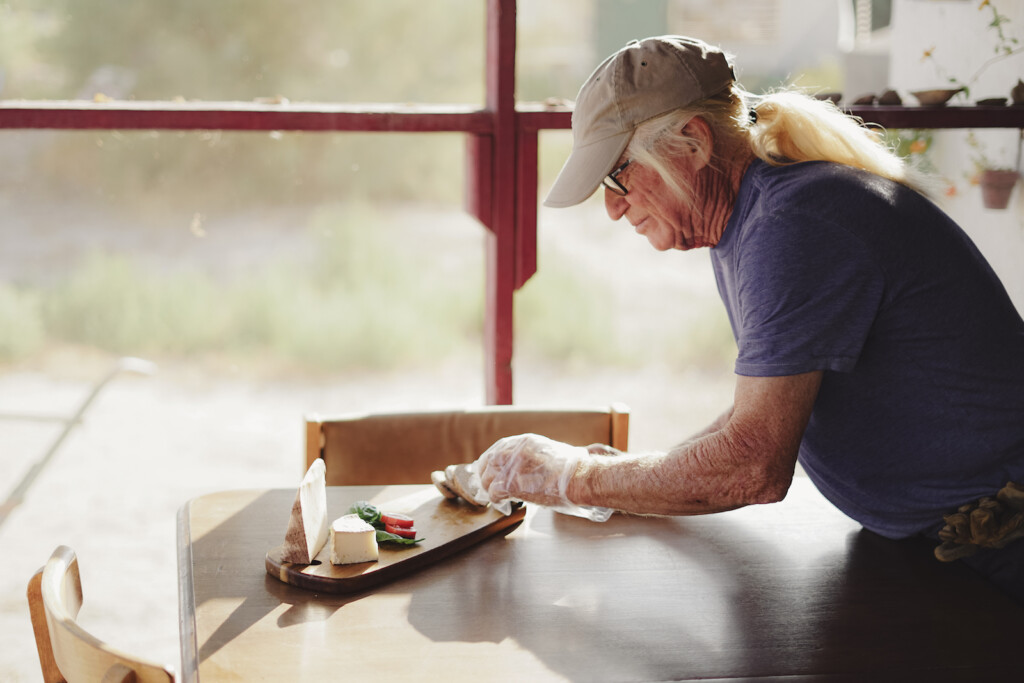
As spring brightens and days lengthen, students in Utah State University’s Student Organic Farm class are diligently monitoring the temperatures in their hoop houses and the soil moisture in their fields. It’s already planting time, and they’re helping ensure the first baskets of fresh veggies are ready for their Community Supported Agriculture customers on the third week of May. From its inception, the farm has demonstrated how committed students can design, build, and maintain sustainable systems.
In the spring 2008, more than 30 USU graduate and undergraduate volunteers, along with College of Agriculture faculty members, broke ground on the one-acre farm. An all-volunteer crew grew and sold veggies on campus that spring, and reinvested the proceeds into tools and supplies for the following season.
Individually and in groups, the students found funding for the farm and their own work as interns. For the 2009 season, they built hoop houses, a tool shed and a shelter, and hired four interns who received a stipend from the proceeds of the first CSA season. A curriculum was created, and students earned credit for their work.
In subsequent years, students installed washing stations, irrigation, and an herb garden—every year working to make the farm better than the one before.
“It’s always fun to see the students at the end of the season realize what they have just accomplished,” said the farm’s faculty mentor Dr. Jennifer Reeve.
Reflective essays about their experiences are full of revelations about the challenges of farming, the value of a strong work ethic, and the joy of eating what they planted, nurtured, harvested, and marketed. Several former interns and managers have gone on to work on or run their own farms or smaller growing operations. For others, the experience has taught them that one season of farming is enough.
“I really enjoyed being a volunteer on the farm last year,” said Sierra Zardrus, who has been the farm manager for this academic year. “I’ve realized that I really don’t want to farm, I want to do research.”

A senior in plant science, Zardrus shepherded the farm through winter upkeep and prepared for a successful 2018 CSA season with spring seeding and early summer planting. She’s headed off to a new position as an agricultural research assistant in a laboratory at Clemson University, and is glad to know now that’s where she wants to be.
The radical little operation has struggled in the last few years as student interest waned and key faculty supporters went on sabbatical. The farm’s intern program is supported by the Utah Conservation Corps through an Americorps grant, and this year includes four undergraduate students and one graduate student from various disciplines. They’re all passionate about sustainable food systems and are applying the experience to their professional, academic, and personal lives.
In its tenth year, with fertile soils, a shed full of tools, and file folders stuffed with the advice and experiences of past teams, the farm holds more potential than ever.
More information about the farm can be found here


